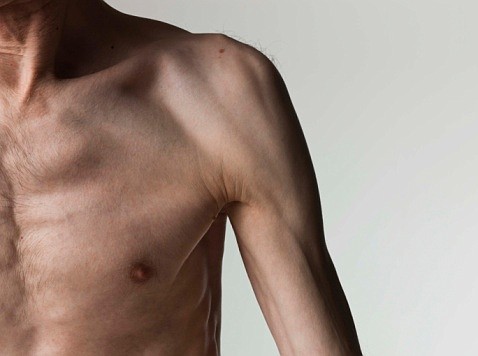Senior health tips: Preventing malnutrition
March 14, 2012 at 8:13 a.m.
As youths, we could get away with eating burgers, fries and soda for every meal and somehow manage to have plenty of energy and never get sick. Unfortunately, the older we get, the more "off-limits" our favorite foods become and the more important it is to focus on nutrition to stay healthy. Chances are, your doctor has already nagged your ear off about eating healthier, but, believe it or not, your doc actually does have a point. Maintaining a well-balanced diet is key to achieving a satisfactory state of physical and mental health. A nutritious diet not only allows us to feel better, but also puts our bodies in a more favorable position to ward off diseases and other medical ailments.
According to experts at the Mayo Clinic, malnutrition in older adults can lead to a weakened immune system, poor wound healing, muscle weakness, and lack of appetite. If you haven't experienced any of the side-effects of malnutrition, you can consider yourself lucky that your eating habits are all that need to be adjusted right now. You may think that the causes of malnutrition can be simply boiled down to poor food choices or skipped meals. In fact, malnutrition is often caused by various physical, social and psychological factors. These can include side-effects from certain medications, illnesses interfering with eating habits, dietary restrictions recommended by your doctor, limited funds, depression, alcoholism, and lack of social contact.
Because there can be many different causes of malnutrition, it's important to understand what specifically might be causing malnutrition in yourself or in a loved one to help tackle the problem from the root. You can detect malnutrition in a number of different ways. One of the first things you should check for is any changes in medication that may have caused malnutrition as a side effect. In these circumstances, you should consult your primary care professional about solutions to this problem. Although you may be proud of your slimmer waistline, weight loss can also be a sign of malnutrition that should lead to changes in your diet.
Preventing malnutrition requires paying careful attention to changes within your eating habits and your body, so you can correct problems before they become serious. Some helpful ways you can prevent malnutrition include the following:
Talk to Your Doctor
If you feel that a new medication may be affecting your appetite or causing weight loss, talk to your doctor about steps you can take to mitigate this problem. This will likely include switching to an alternative medication that doesn't pose the risk of weight loss as a side-effect.
Take Control of Your Diet
Aim for a healthy, balanced diet by including plenty of proteins, fruits, vegetables, and other nutrients that provide you with essential vitamins and minerals to stay healthy. If greens make you gag, consider taking nutrition supplements for the nutrition found in foods you don't particularly enjoy to stay healthy without the discomfort.
Eat Healthy Snacks
Eating healthy, between-meal snacks, such a piece of fruit or cheese, is a great way to keep your metabolism active and provide your body with nutrients to keep you going throughout the day.
Socialize During Meals
When you live alone, you may skip meals just because they can become boring or depressing when there's no one else around. Try going out to dinner with friends more often or having dinner parties with family members at least once a week to get into the habit of looking forward to your meals and truly being able to enjoy them.
Exercise Regularly
Getting your recommended amount of exercise each day can help stimulate your appetite and strengthen your bones and muscles. Additionally, exercise contributes to better heart health, circulation and mental well being.
Content Provided by Spot55.com





